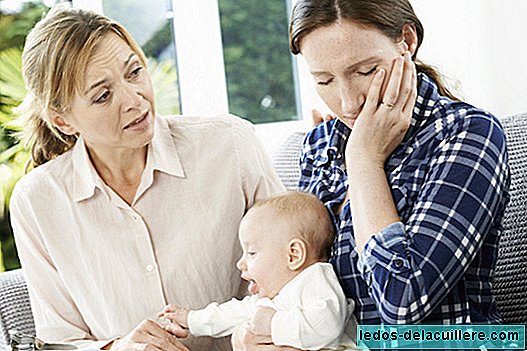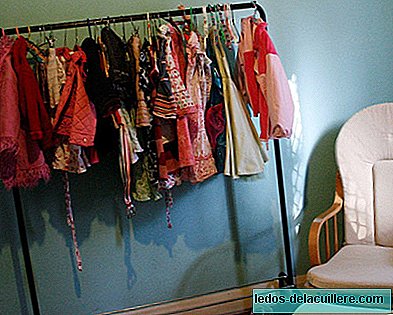Currently talking about postpartum depression is no longer a taboo thanks to the presence of more blogs of mothers who tell their story, as well as celebrities who openly declare that they suffer or went through it.
However, despite all the information that is shared and that more and more support is shown towards those who suffer from it, many women still hide it. According to a new study, one in five recent mothers, suffers in silence some kind of psychological disorder during postpartum.
One in five women hide suffering from depression or anxiety during postpartum
The study, conducted by the University of North Carolina in the United States, found that 21% of recent mothers hide from their doctor that they suffer from some kind of psychological disorder, such as depression or anxiety, after birth.
In a press release published on the University's website, Betty-Shannon Prevatt, a clinical psychology practitioner and one of the study authors, said that it is known that 10% to 20% of women suffer from some kind of disorder After childbirth, it can affect the physical and emotional well-being of mother and child.
The objective of the investigation was to know how many women were not revealing this information to their doctors, it is definitely one of the limitations to help those who suffer.
To obtain the data, an online survey was carried out, in which 211 women who had given birth in the last three years participated anonymously. Among the questions asked They were asked to comment if they had suffered symptoms of a psychological disorder after childbirth and if they had told medical staff (doulas, lactation consultants, gynecologists or nurses) in case of suffering, in addition to some questions about their mental health and the obstacles that they might have encountered when seeking help.
It was found that half of the women who participated met the criteria or symptoms of having suffered a psychological disorder, but that one in five did not tell his doctors.
It was also discovered that women who had higher stress levels and who had a support network were the ones most likely to tell their doctors about symptoms of postpartum depression or anxiety.
Although the study could not specifically identify the reasons why some women hid it, it was found that those who were unemployed, had a history of mental health problems or who were suffering from severe symptoms, were the ones most likely to hide this information from health personnel.
"This work highlights the importance of support networks and the need to normalize the wide variety of reactions that women have after childbirth. We need to talk about mental health for women is something that is right, so they can have better access to care. Working with people who are close to recent mothers could be the key"said Prevatt.
You are not alone

The results of this study remind us that we should continue talking not only about postpartum depression, but about all possible psychological problems or disorders that may occur after delivery. It is very important that all new mothers keep in mind that they are not alone.
With each study and research carried out, he tells us that postpartum depression is actually more frequent than we imagine, but fortunately it has a solution.
If you suspect depression, anxiety or any other psychological problem, we should discuss it with our family and doctors. The support of the couple is very important at a stage like this.
Photos | iStock
Via | EurekAlert
In Babies and more | The sincere photos of a mother that show the reality of her fight against postpartum depression, The message of a father who lost his wife because of postpartum depression












